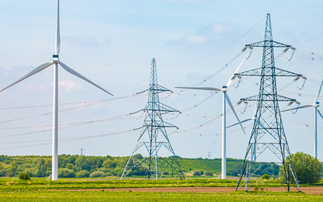Leo Johnson, Partner, explains the challenge facing government leaders in the 2015 UNFCCC summit in Paris
Scientific consensus, represented by the Intergovernmental Panel on Climate Change (IPCC), is that increasing carbon emissions into the atmosphere have led to a warming of the climate system. This would lead to widespread and severe impacts - including rising sea levels, disrupted food systems and water availability, and more extreme weather events. The Paris UNFCCC summit would set the framework for national governments to drive down carbon emissions to avoid extreme climate change and prepare for its impacts.
Its outcome will underpin the scale of two challenges facing governments, business and civil society in dealing with climate change.
Firstly, without rapid and significant efforts to limit carbon emissions, the world will need to brace itself for climate shocks. This means increasing risks on food security, supply chain disruptions, more frequent and more severe weather disasters - all for which governments, businesses and individuals need to prepare.
Secondly, if governments take on the challenge to reduce emissions rapidly, businesses and civil society are likely to expect policy shocks. These are likely to be policies that make carbon-intensive activities more expensive, reward and enable financial flows into low carbon developments. Again, businesses and civil society will need to be able to respond to these shocks.
Video transcript:
"In December 2015, governments from around the world will meet in Paris. What's at stake? The ambition is to agree an international deal on climate change that will limit global warming to 2 degrees centigrade by radically reducing carbon emissions. Why is this important? 2 degrees of warming will mean sea level rise, disrupted food systems, water shortages, more severe, more extreme weather events. Beyond 2 degrees the impacts aren't just widespread and disruptive; we run the risk of hitting tipping points that take us to run away climate change.
"So what's the real challenge? The economic growth model we've depended on is one powered by fossil fuels. And fossil fuels, they've got lots of carbon. Growth in other words is bound in with carbon. Reducing carbon emissions means breaking this link. We've estimated that to stay below 2 degrees centigrade we need to reduce our carbon intensity, that's the amount of carbon for every dollar of GDP produced by at least 6% a year ‘til the end of the century. To do this we need to de-couple growth from carbon, we need to transform how we generate and use energy, we need policies that give incentives for low carbon options and let the high carbon options reflect their true cost. We need to deploy at scale the innovative technologies that have got the potential to give us a next wave of sustainable growth.
"Sound challenging? Well no one individual or country can go it alone, if we want a chance for binding and adequate international commitments, to a low carbon transition, the UN summit in Paris in 2015 is the crucial step."
Leo Johnson is a Partner in the Sustainability & Climate Change team at PwC
This article is part of BusinessGreen's Road to Paris hub, hosted in association with PwC








